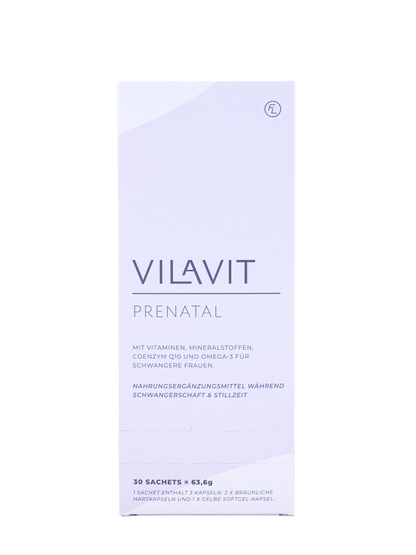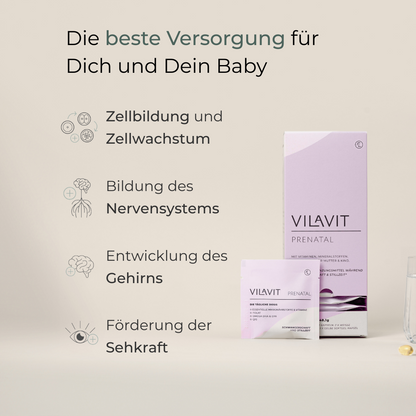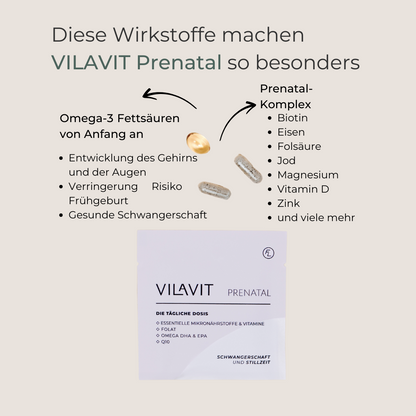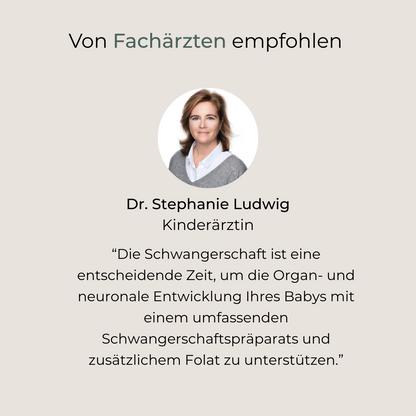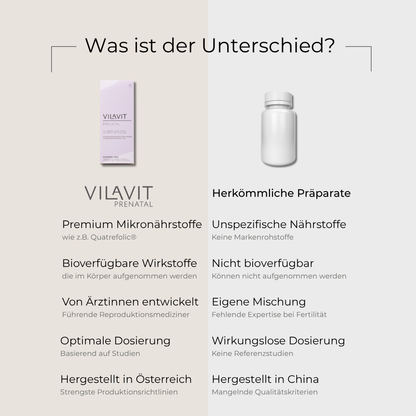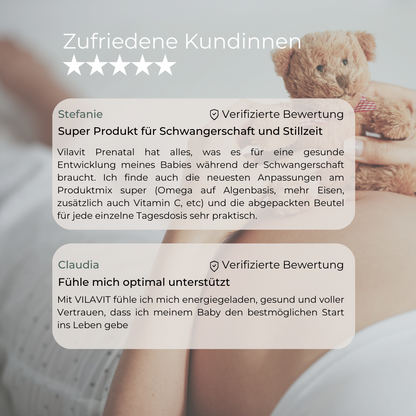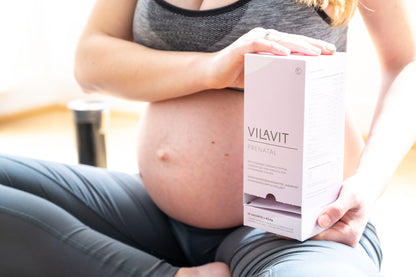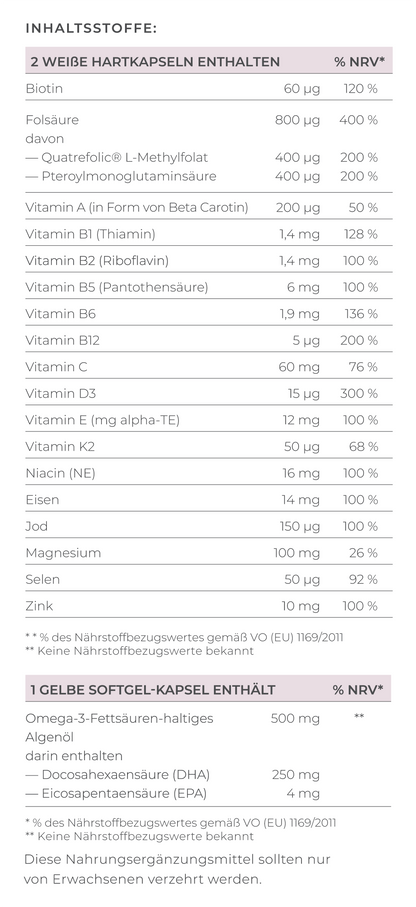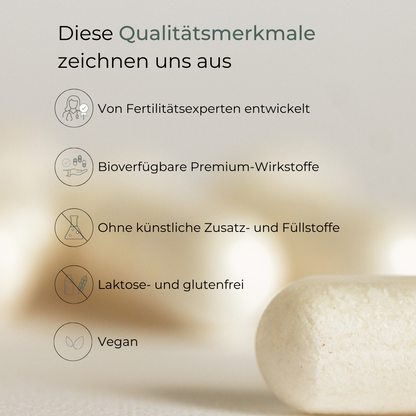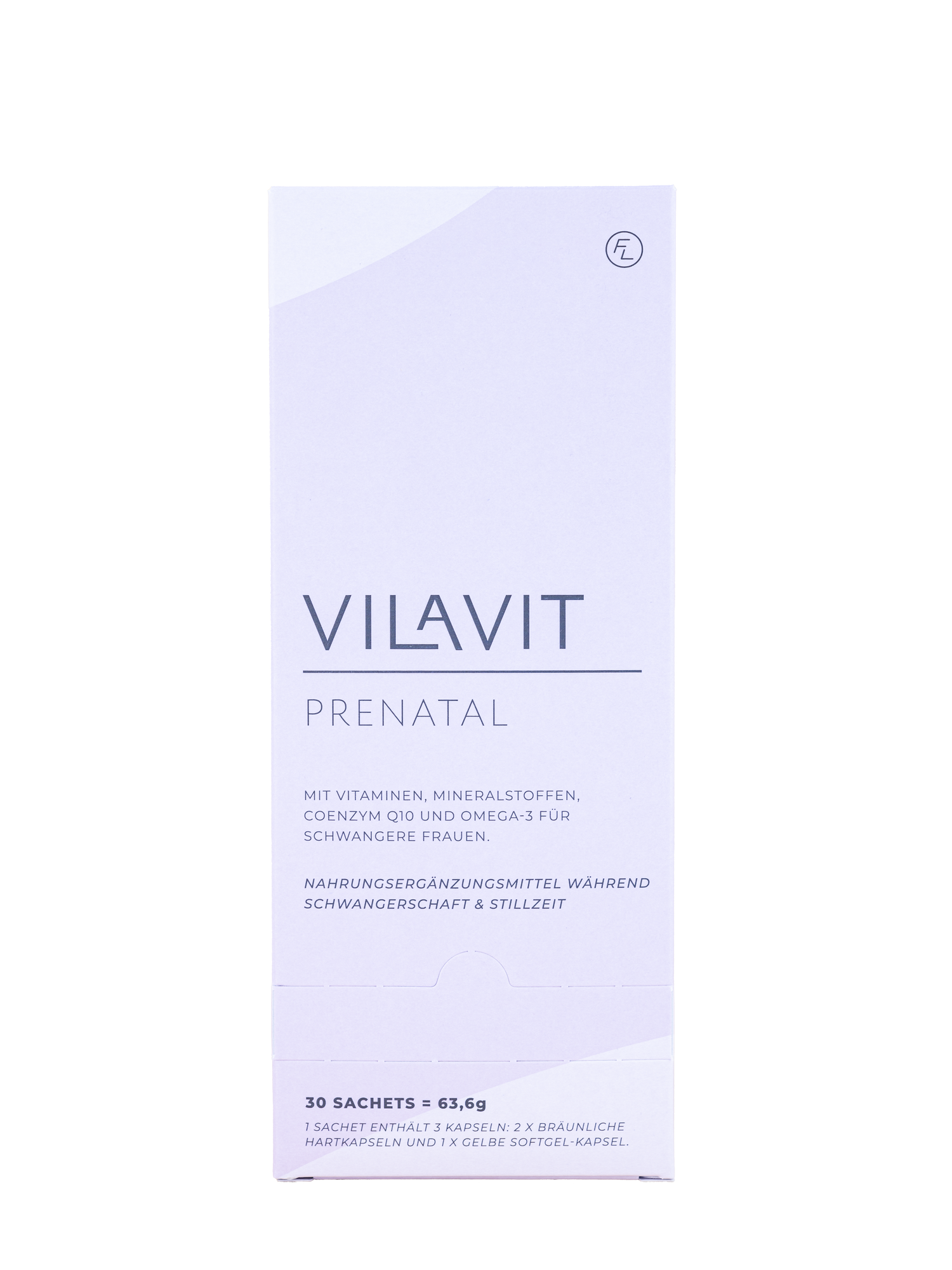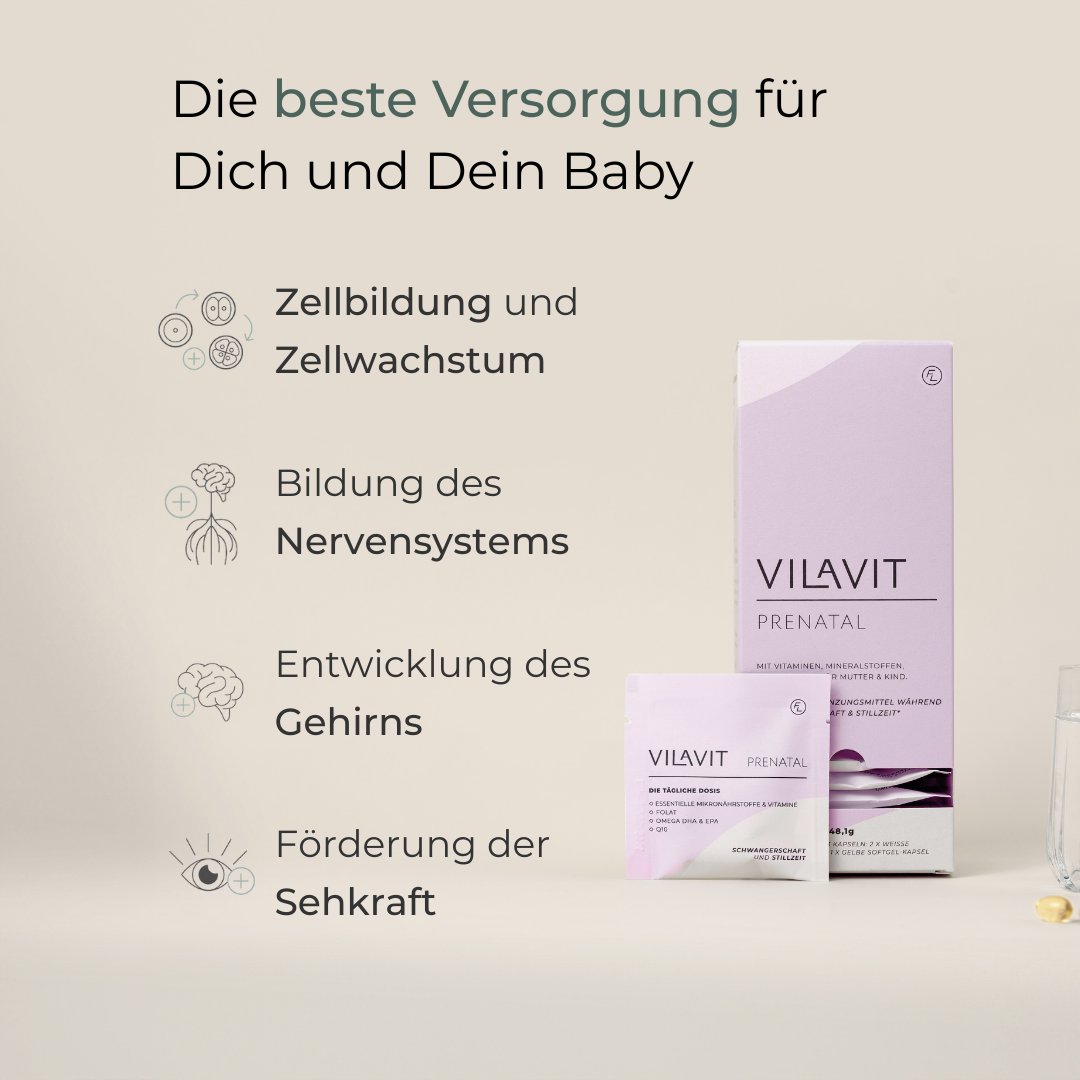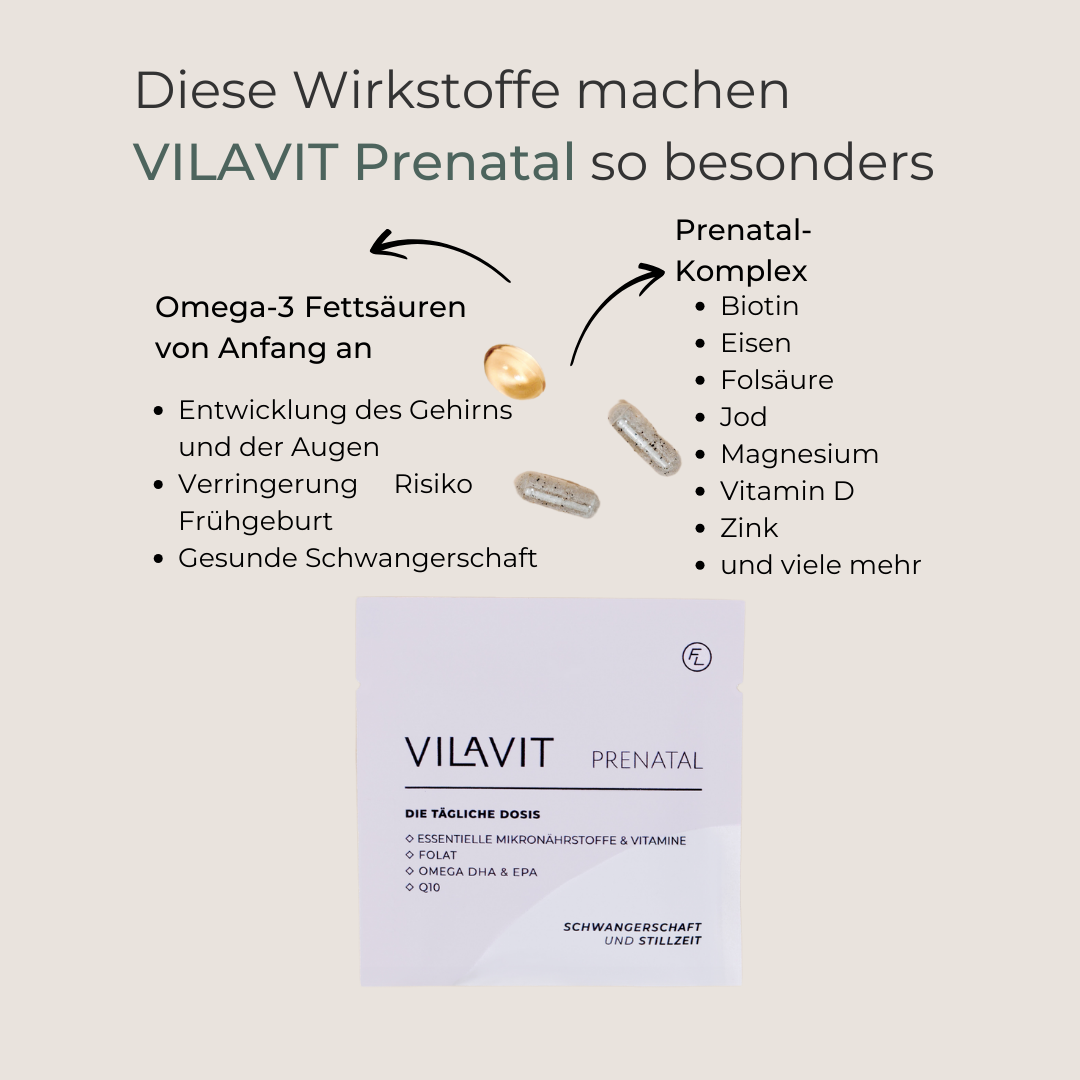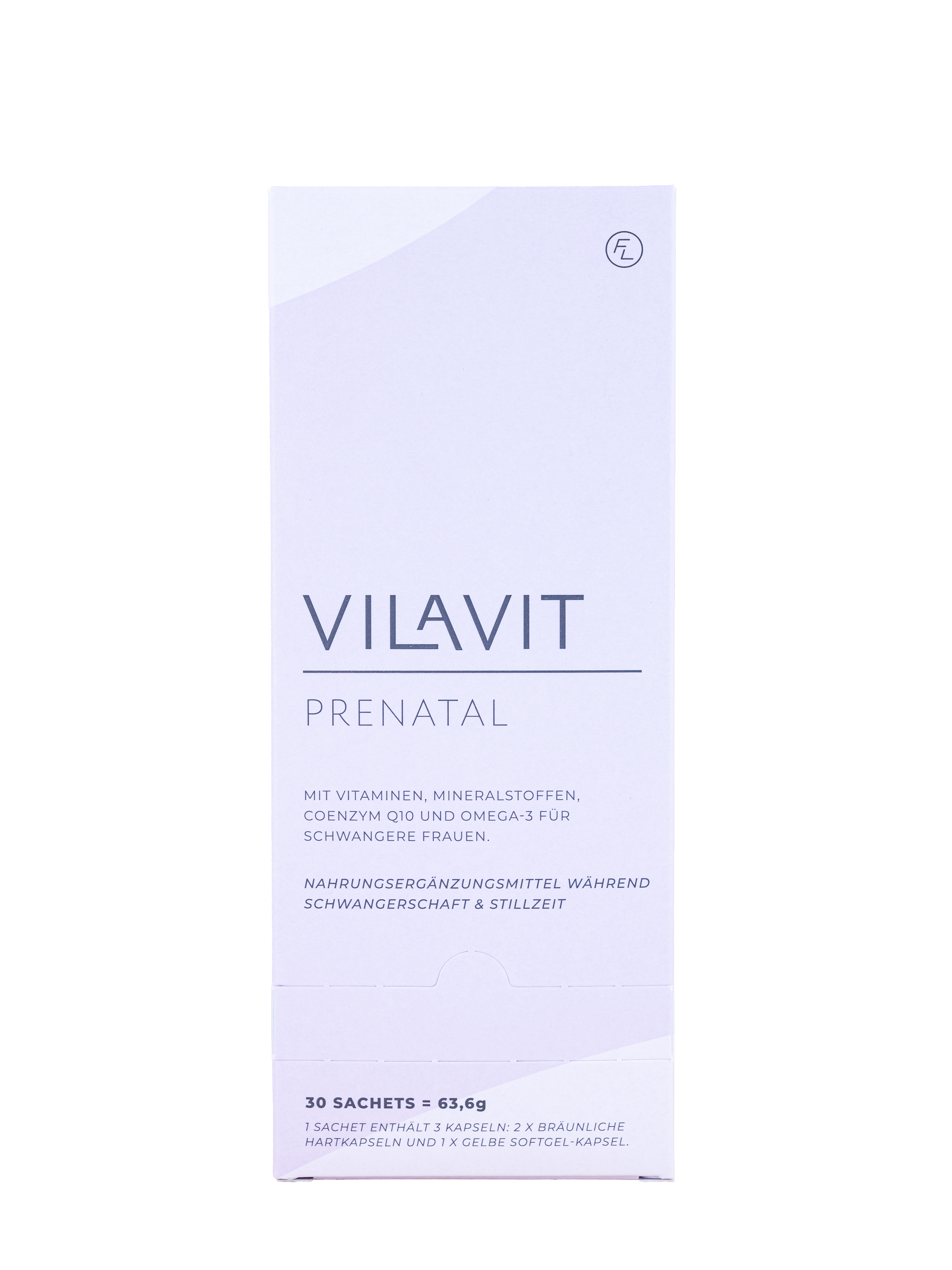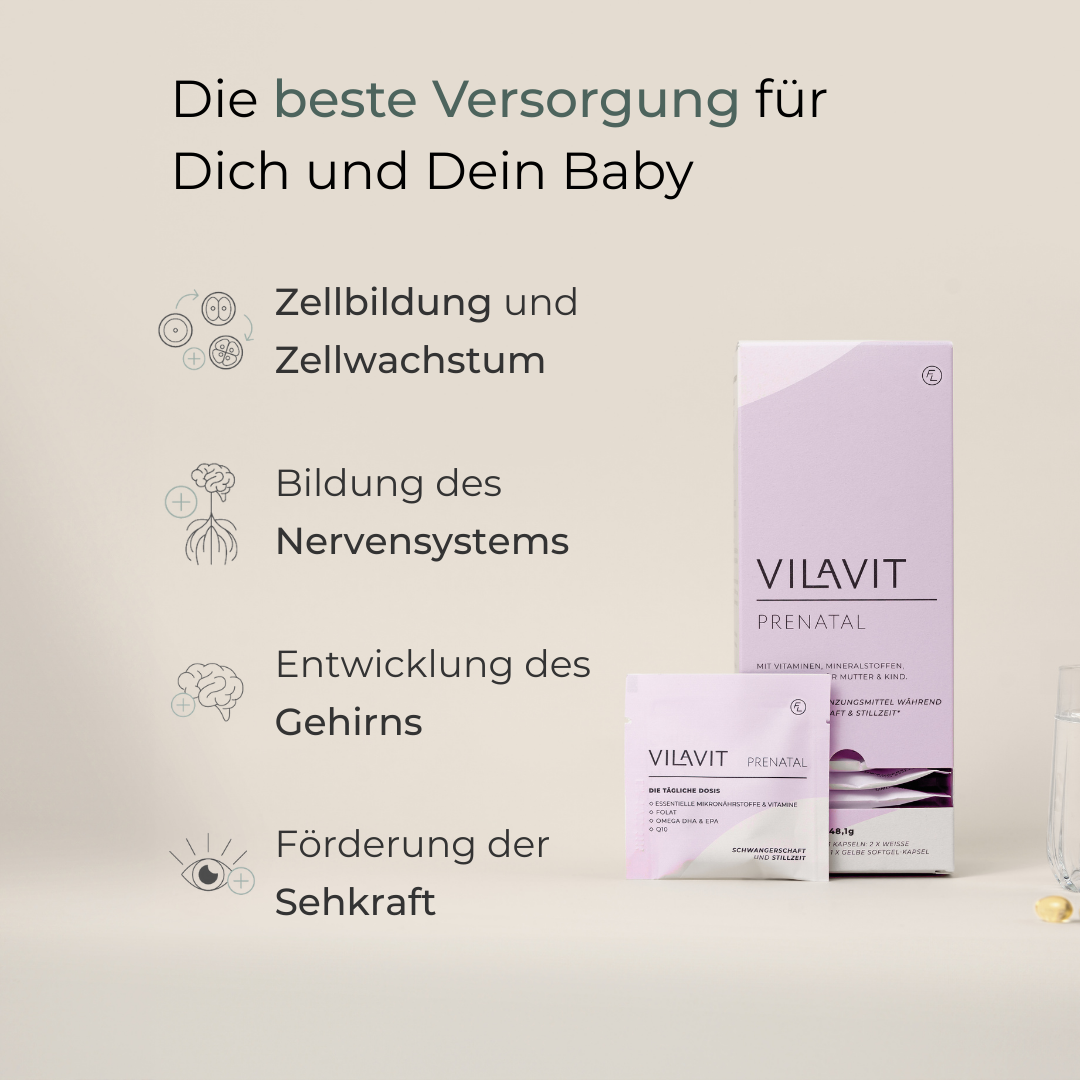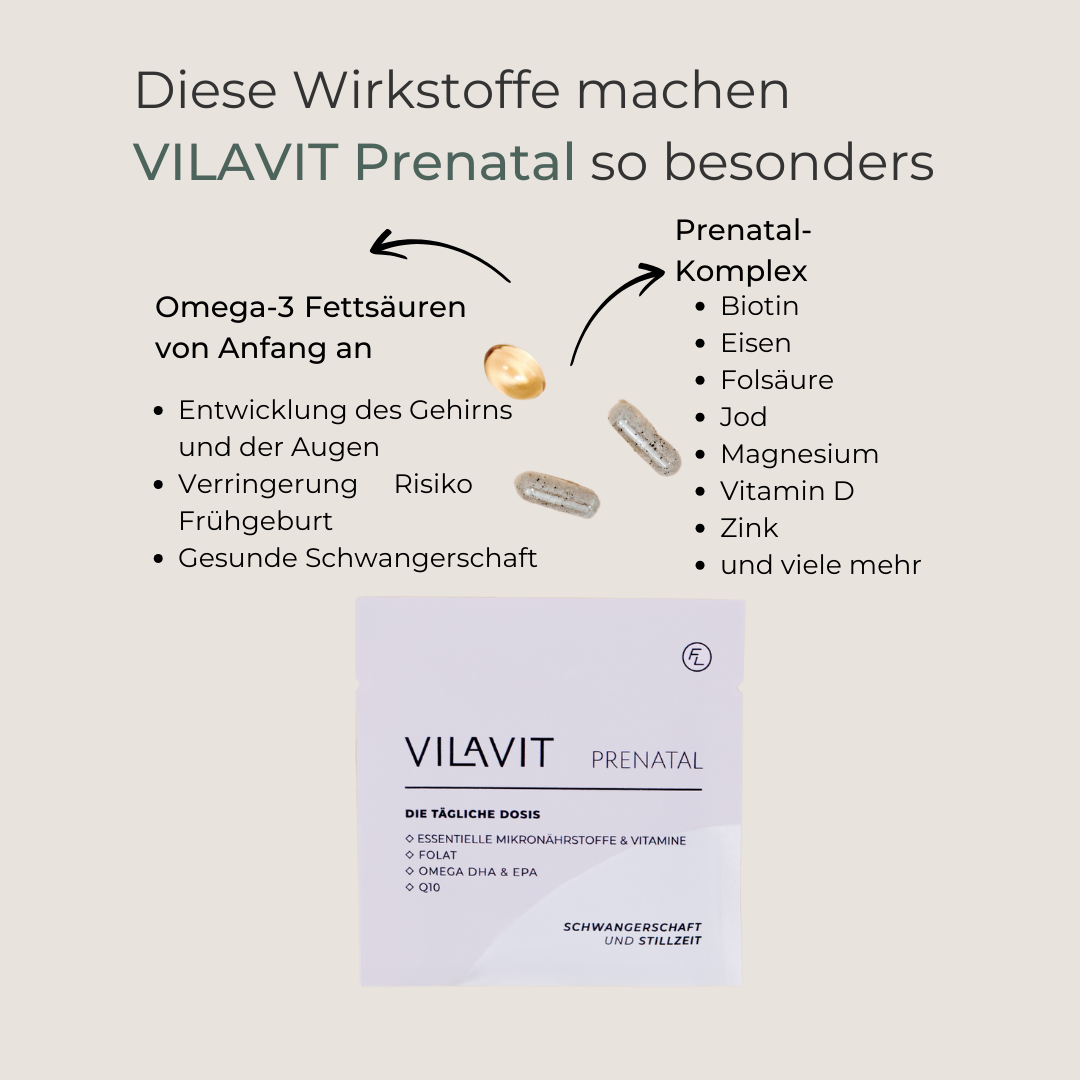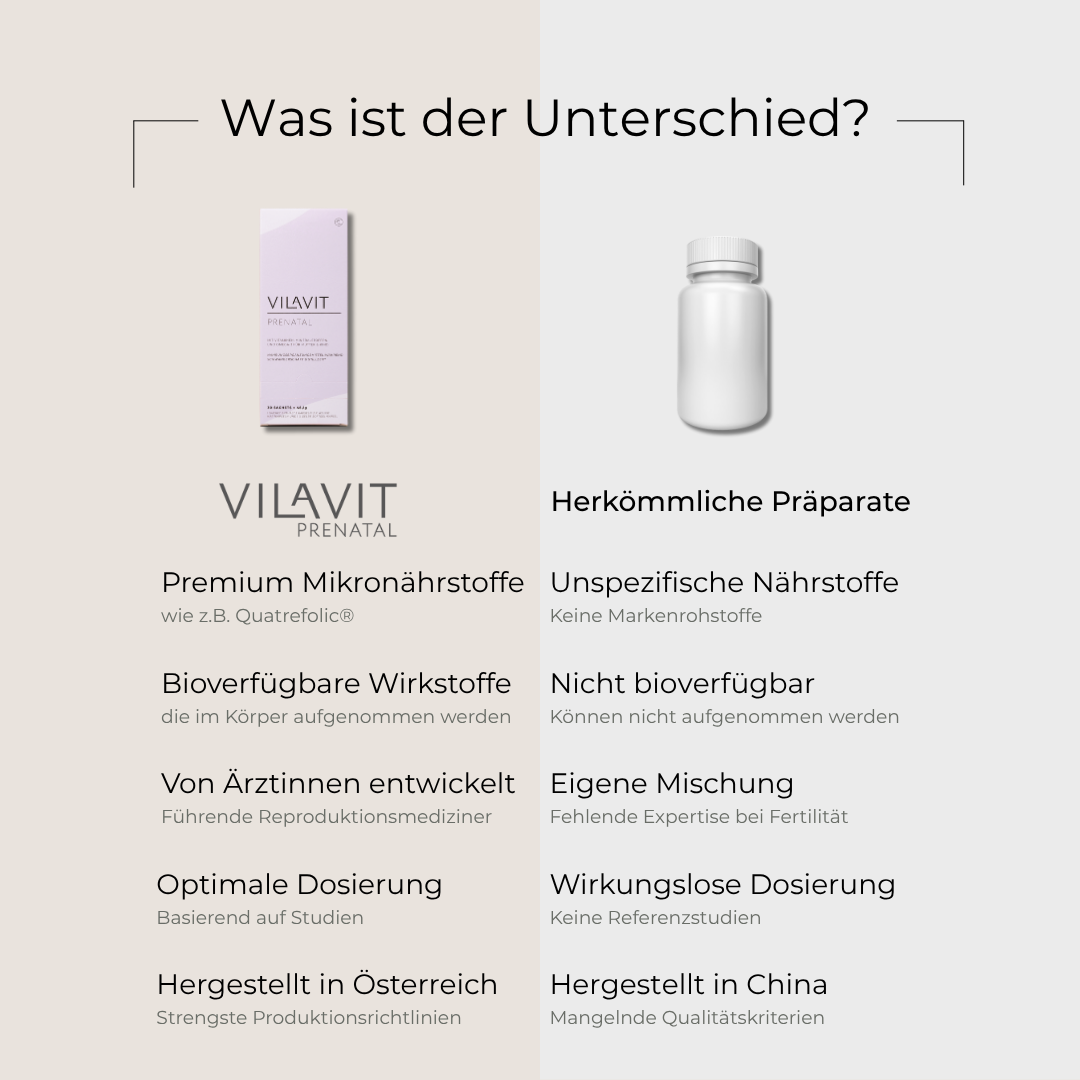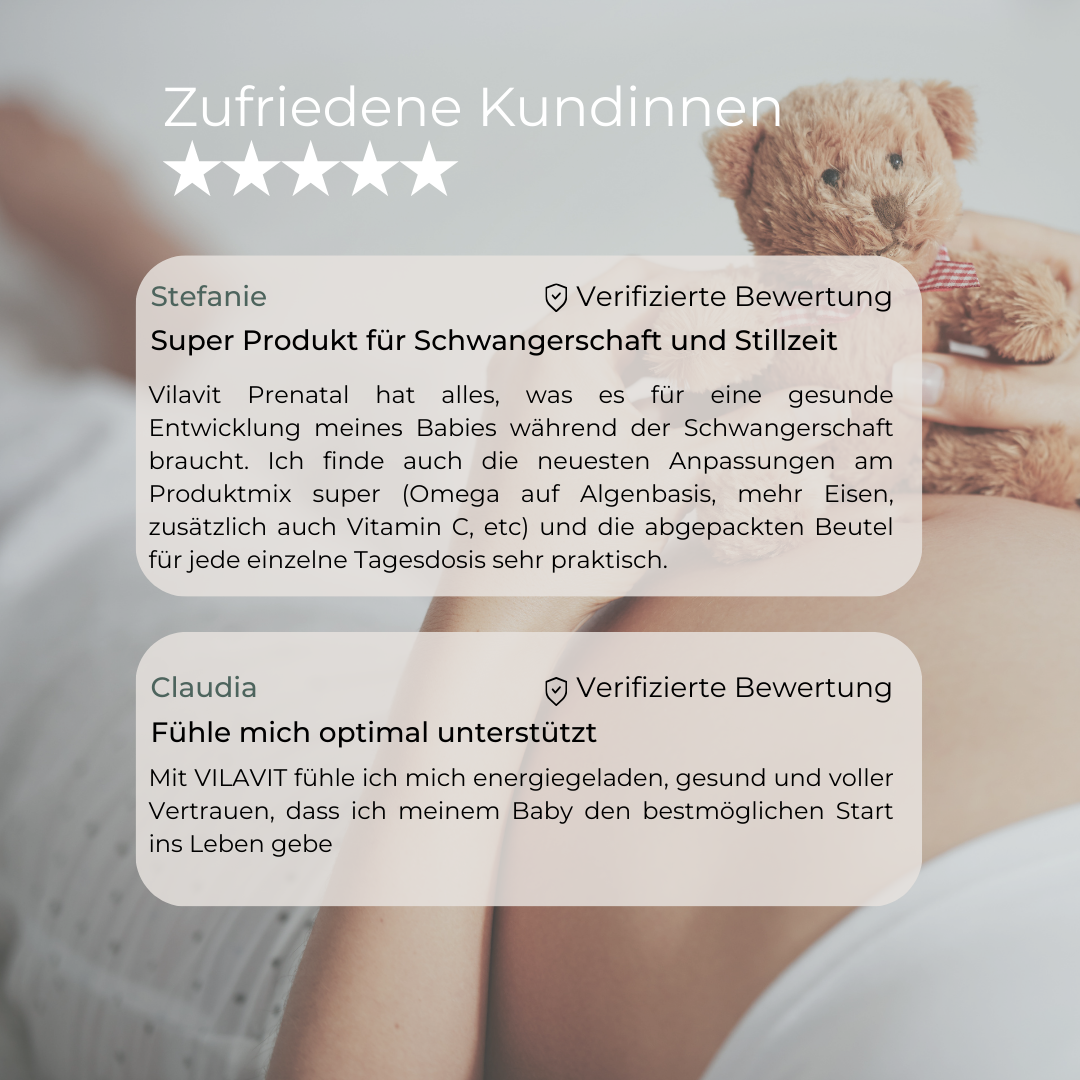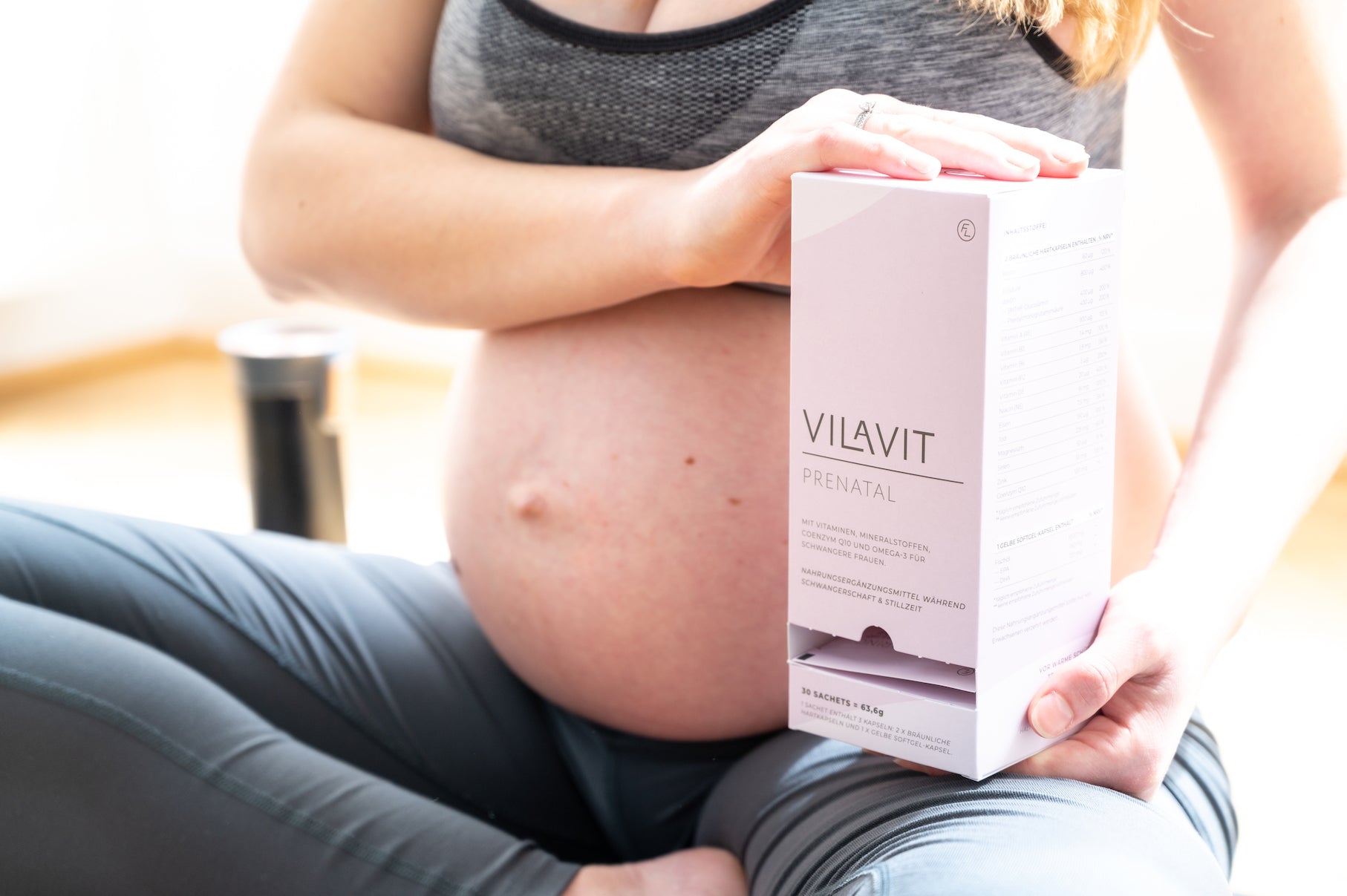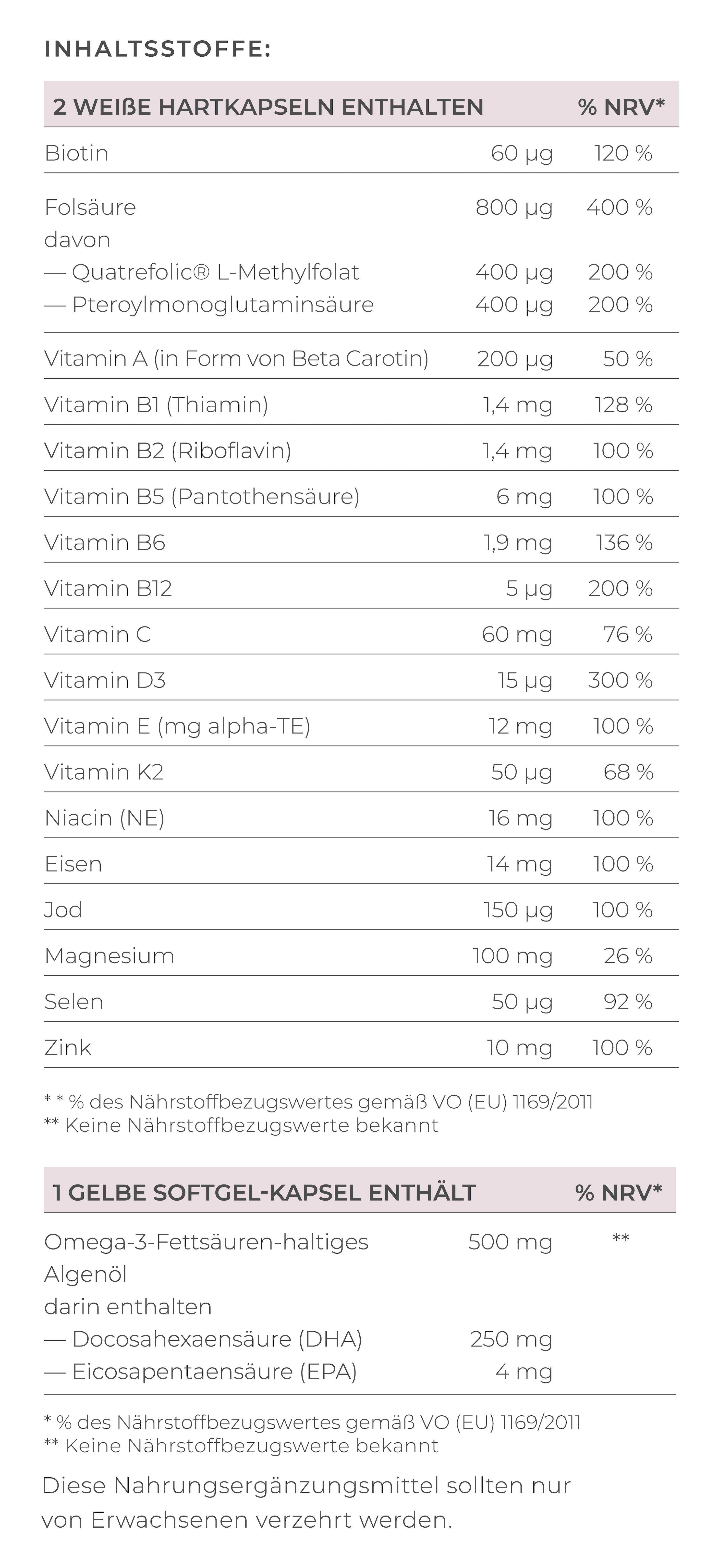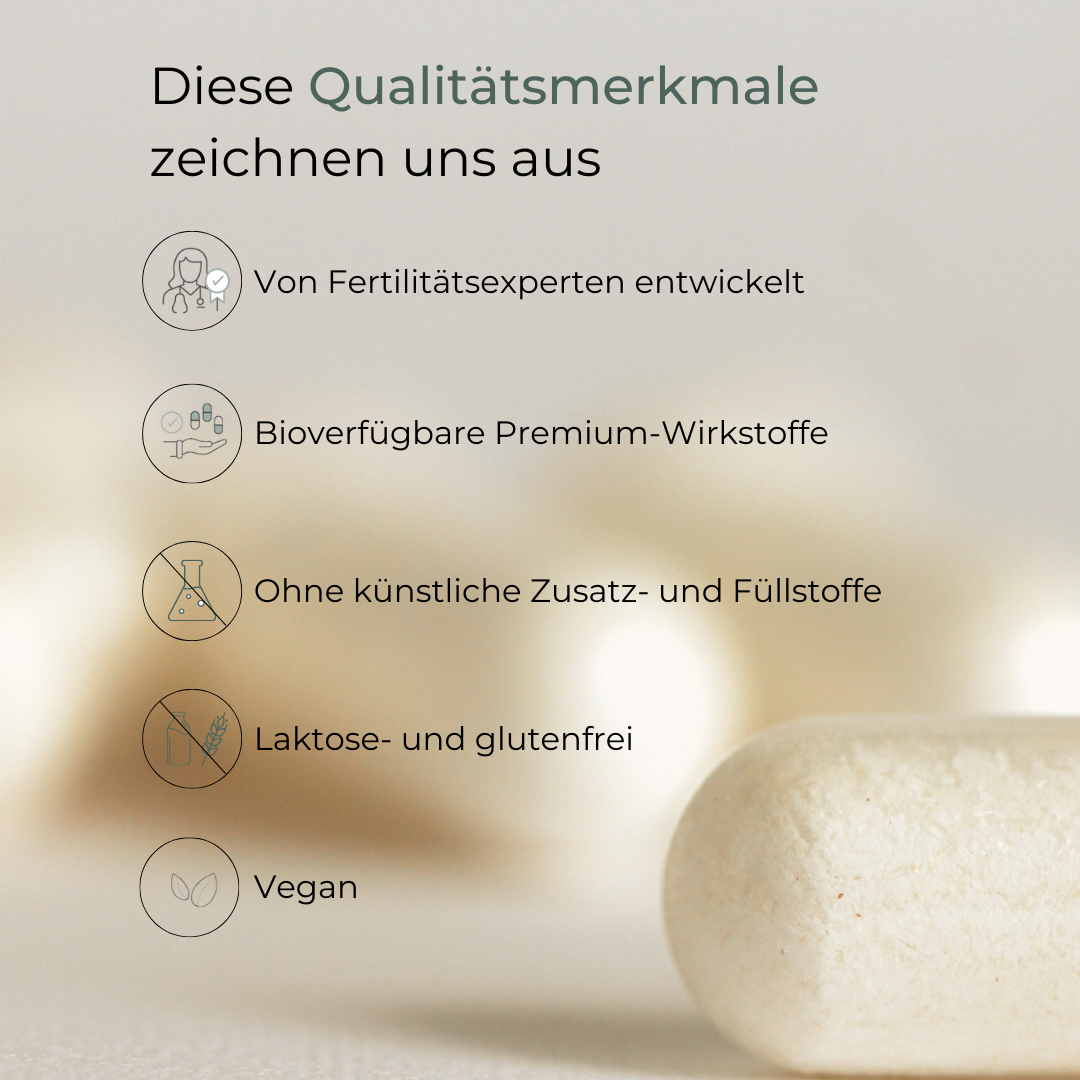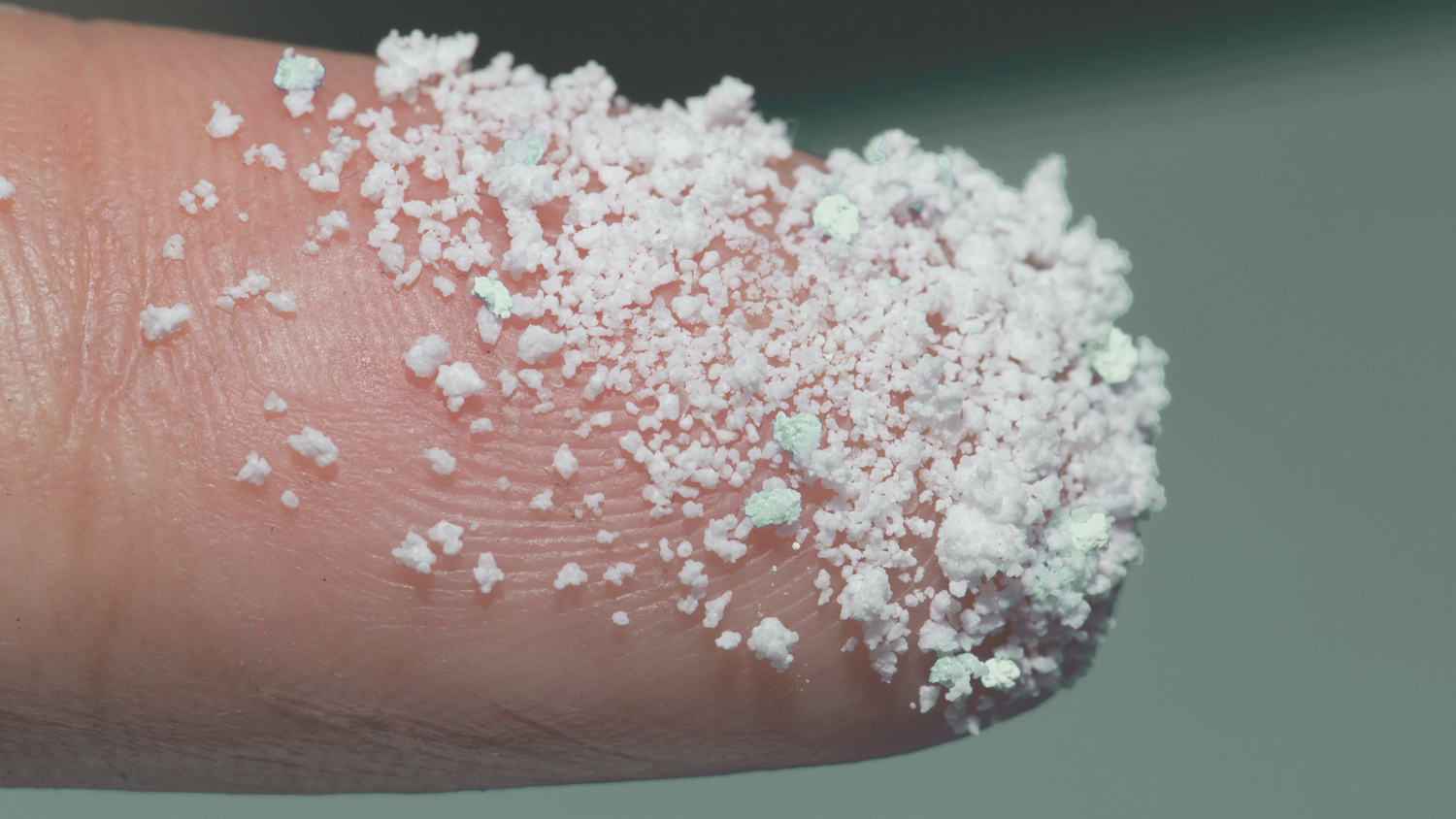Many associate folic acid or folate with a healthy diet during pregnancy. Because the vitamin is essential for cell division and new cell formation and is therefore not only essential for our own body, but also for the health of our offspring. The need for folate increases accordingly during pregnancy, since two organisms suddenly have to be supplied with it. It is therefore important to make sure that you are getting enough folic acid if you are planning to have children – and not just during pregnancy, but even before that! Here we explain why vitamin B9 is essential for mother and child.
Folic Acid vs. Folate: What's the Difference?
Folic acid is not the same as folate. Folic acid does not occur in nature, but is a pure laboratory product. The synthetically produced form is therefore only found in vitamin preparations, dietary supplements or fortified foods to compensate for an increased folate requirement. Folate, on the other hand, is the original product that is naturally contained in our food. This is vitamin B9, which is found in animal and plant foods. After ingestion, these are converted by our body into tetrahydrofolate to help form cells and red blood cells. Since it is water soluble, it cannot be stored in the body, but must be supplemented in our diet on a daily basis.
Foods containing folate for a balanced diet
Folate is abundant in vegetables, meat, and whole grains. The following foods in particular are therefore suitable for a folate-rich diet:
- Leafy greens: lettuce, spinach
- Legumes: soybeans, peas
- Vegetables: tomatoes, asparagus, cabbage, peppers, fennel, cucumbers
- Grains: whole grains, wheat germ, nuts
- Animal products: eggs, liver and offal
The normal daily requirement of folate depends on age, but is around 300 µg for adults. According to the DGE (German Society for Nutrition), this increases to 450 µg or 550 µg during breastfeeding and pregnancy. Covering this with food alone is difficult, even for those who are nutritionally conscious, since many sources of folate are not suitable for pregnant women and this vitamin is extremely sensitive to light and heat. 60-90% of the folate can be destroyed during cooking.
The effect of vitamin B9 on mother and child
Folate or folic acid has many tasks: It contributes to normal amino acid synthesis, is important for cell division and cell formation, supports the immune system and is required for blood formation. During pregnancy, it is essential for maternal tissue growth and embryonic cell development. A folic acid deficiency can manifest itself in the mother through fatigue, exhaustion, pale skin, dizziness and shortness of breath - in severe cases also through a red tongue, a restricted sense of taste, diarrhea and weight loss. During pregnancy, this can even lead to anemia (low blood count) and have serious consequences for the baby. These include: •
- Abnormalities on the back (open spine)
- Malformations of the brain (neural tube defect)
- Other malfunctions
Conclusion
Since a folate deficiency during pregnancy can lead to significant developmental disorders, it is essential to take folic acid in good time to supplement a balanced diet. We recommend starting at least three months before conception to ensure stable, positive folic acid levels, even if the pregnancy is initially undetected. This is particularly important to avoid congenital brain damage and birth defects. The neural tube, which is crucial for the development of the central nervous system, is formed just three weeks after conception. If you wait until the first pregnancy symptoms appear in order to start supplementing folic acid, you may risk the health of your baby.



